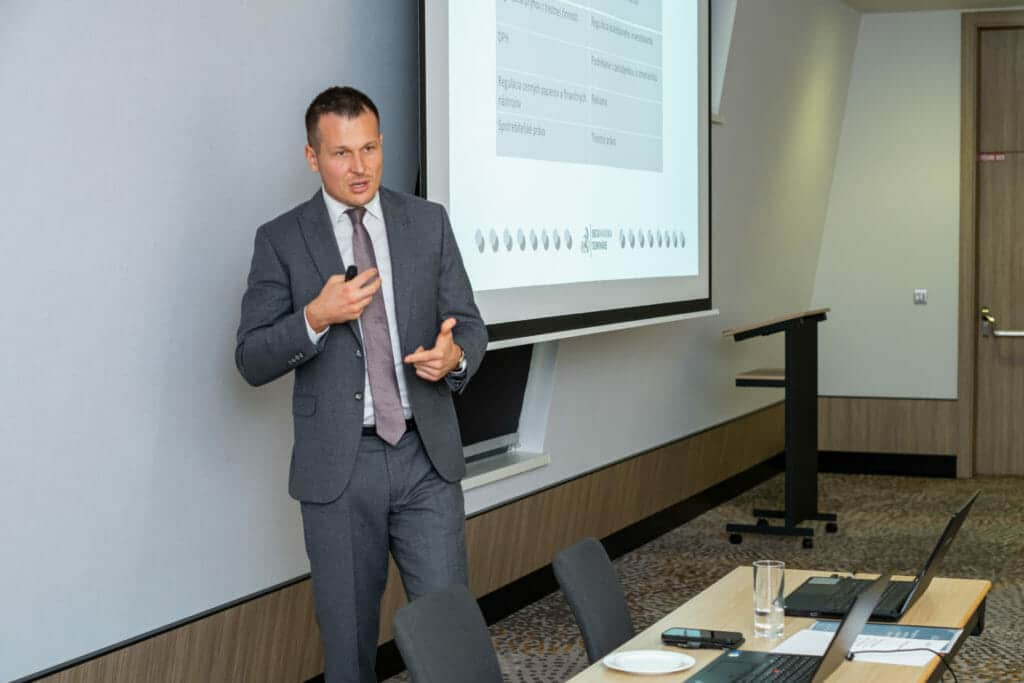
The lecture was organized by C.H. Beck Publishing and took place in mid-September 2022.
As a consultant, Peter Varga works with state authorities not only in the field of financial regulation but also in the field of taxation, and in addition to financial regulation, he also discussed tax legislation and the state’s view on the topic of crypto assets today.
Regulation of crypto assets today is more complicated than it may seem at first glance.
Although the NBS has indicated in a number of statements that the existing financial regulation does not have sufficient substantive scope for transactions and projects in the crypto asset area, this may not be entirely the case in practice.
As an example, various intermediary business models involving, for example, the management and administration of crypto assets may interfere with existing regulation of payment services.
For example, the issuance of certain types of “asset referenced tokens” or “security tokens” may also appear problematic in terms of collective investment or securities regulation, despite the fact that crypto-assets are generally not considered to be securities and, to a large extent, not financial instruments.
Another problematic issue is the regulation of the provision of investment services, where in some situations Slovak providers of services in the area of crypto-assets meet the characteristics of the provision of regulated investment services.
This also exposes them to the risk of criminal prosecution for the offences of unauthorised business activities and legalization of proceeds of crime.
In addition to these areas, AML, e-money regulation or banking regulation (especially for DeFi) should not be forgotten for “crypto projects”.
Thus, it is currently not possible to give a clear answer on the compliance with financial regulation and the related practical risks (in particular asset freezing or criminal prosecution) without a deeper analysis of a specific “crypto project”. The involvement of the NBS in the area of supervision is also questionable.
The situation is even more problematic in the area of taxation. For income tax, the biggest problem is the accounting for more complex “crypto projects”, where our accounting procedures do not provide clear answers to several economic situations that often occur in practice (e.g. ICOs, revaluation of crypto assets, DeFi models, etc.). Also problematic is the risk of double taxation on the acquisition of crypto assets in certain transactions (e.g. crypto received for a service rendered) or the lack of a broader definition for crypto assets. This naturally has tangible implications for taxpayers’ perception of the maturity of our legislation as well as their willingness to align their processes with current legislation. Last but not least, the taxation of “25+14” on the sale of crypto assets is perceived as a problem in lay society. From a VAT perspective, the situation is similar. Some crypto asset transactions are subject to VAT and some are not. Peter Varga spoke more about this at a lecture on VAT and crypto for the Slovak Chamber of Tax Advisors.

If you are interested in this topic, please do not hesitate to contact us.
Law & Tax
Tomas Demo
tomas.demo@highgate.sk
Accounting
Peter Šopinec
peter.sopinec@highgate.sk
Crypto
Peter Varga
peter.varga@highgate.sk